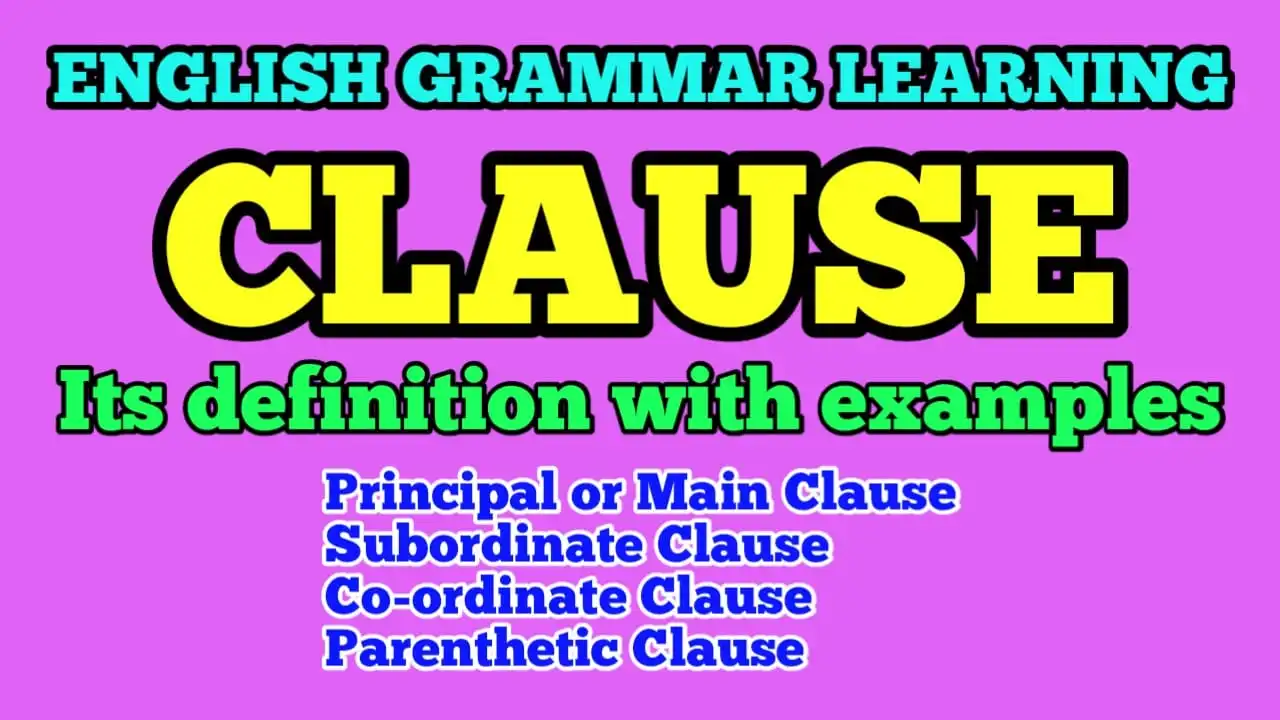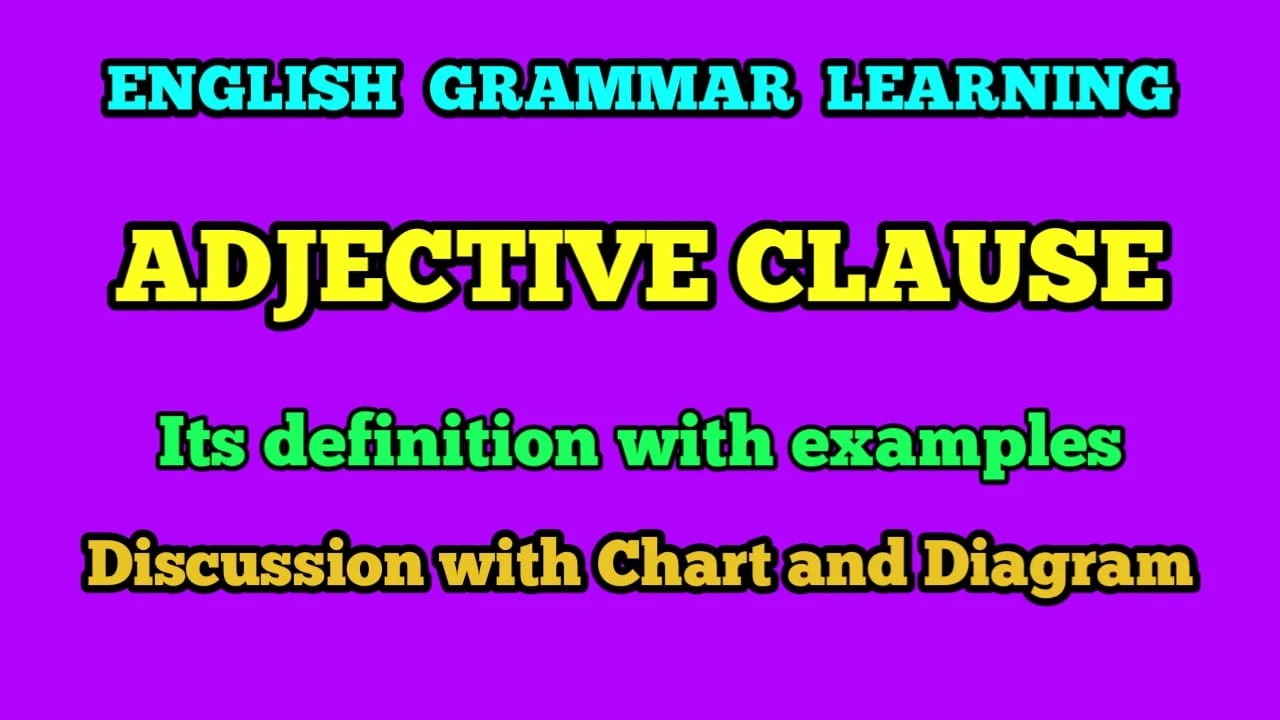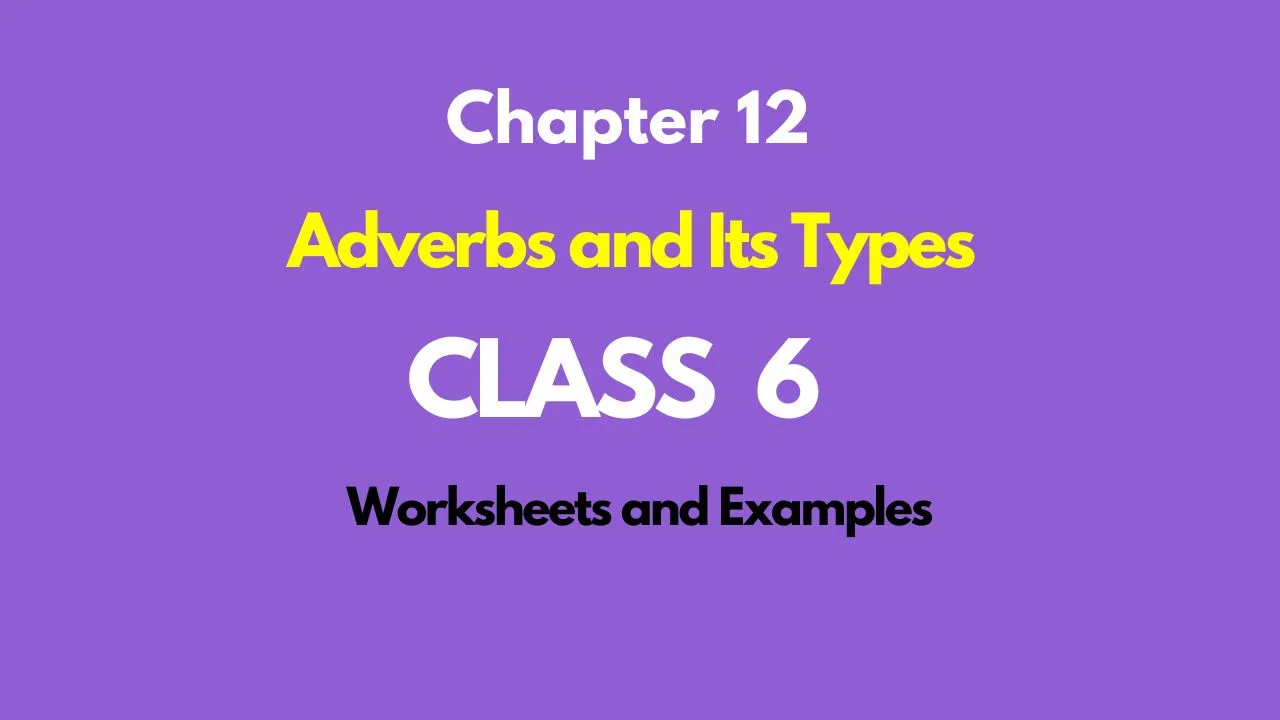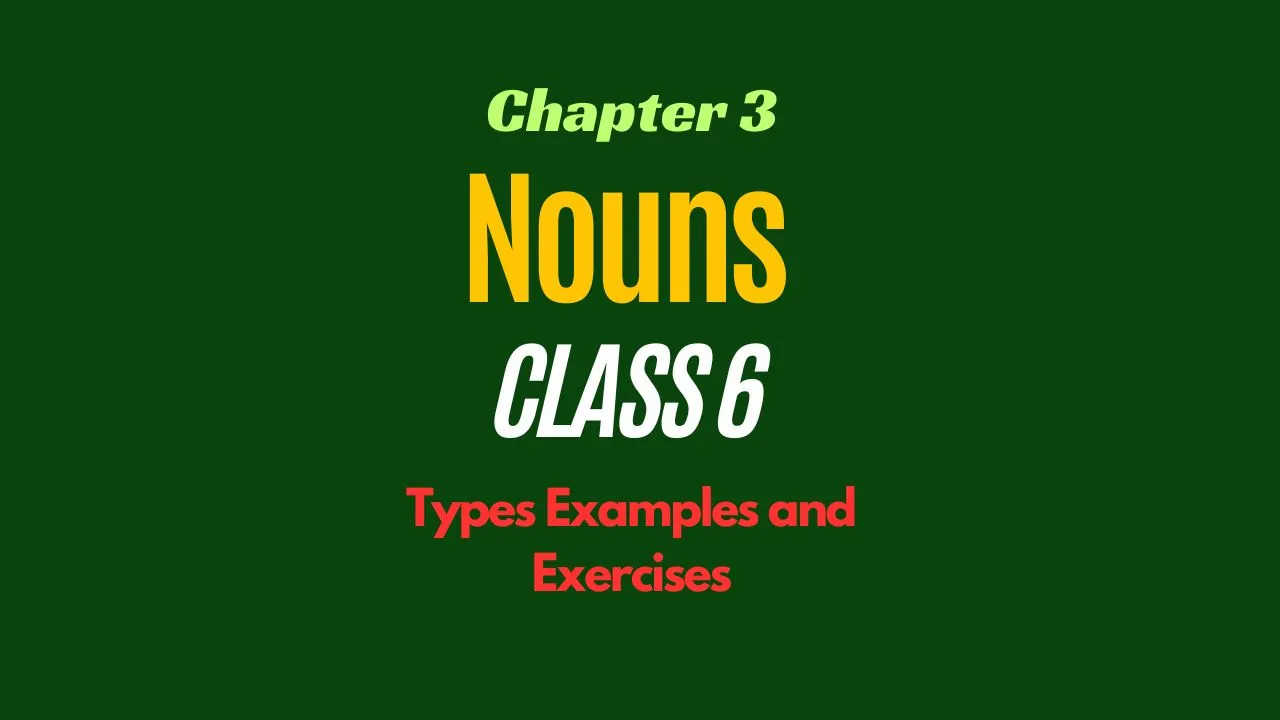In English Grammar Clause is an essential part of written or spoken English knowledge. Clause Examples in English Grammar have been discussed with their types and meanings that will be very effective for students and all.
Clause Meaning in English
Sometimes in English, we come across sentences that may have two or more finite verbs and subjects. Those are clause examples in English Grammar where there are groups of words with two or more finite verbs and subjects in a single sentence. The more finite verbs and subjects, the more clauses will be in a single sentence.
How to Identify Clause In English
Example: I did not go to school as I was ill.
Let’s analyse the sentence how to identify clauses from the meaning of Clause.


Clause Definition in English
“A clause is a group of words that includes a subject and a verb forming a sentence or part of a sentence.
Example: He often visits Spain because he likes the climate.
”He often visits Spain” is a Main Clause and “because he likes the climate” is a subordinate clause.” – A.L.D.
Clause Examples in English Grammar
(i) I know the boy who did it.
(ii) Tell me the place where he lives.
(iii) Tell me the time when he will come.
(iv) I know the reason why he said so.
(v) I know the way how he did it.
(vi) Father came when I started for Delhi.
(vii) You may go where you like.
(viii) My friend will not come because he is ill.
(ix) I am so tired that I cannot walk.
(x) He worked so hard that he was tried.
The groups of words in all the above sentences contain two finite verbs and subjects in a single sentence. the group of words containing a finite verb and a subject are the Clause Examples in English Grammar.
Types of Clause In English Grammar
According to the meaning of the clause and the connectives placed before or after it in a sentence, clauses are of mainly two types, but there are two other clauses also. They are the Principal Clause and Subordinate Clause. Subordinate Clauses or Dependent Clauses are of three types; Noun Clauses, Adjective Clauses, and Adverbial Clauses.
1. Principal Clause or Main Clause or Independent Clause:
2. Subordinate Clause or Dependent Clause:
- Noun Clause or Nominal Clause
- Adjective Clause or Relative Clause
- Adverbial Clause or If Clause or Conditional Clause
3. Co-ordinate Clause:
4. Comment clause or Parenthetic Clause:

People also ask
Principal Clause, or Main Clause or Independent Clause
When the meaning of the groups of words containing a finite verb and a subject in a sentence is clear and no help from other words is required to complete its sense, Those groups of words are called Principal Clause, or Main Clause, or Independent Clause.
Example: My father called my friend and asked him why he was shouting.
“My father called my friend and asked him why he was shouting” – this sentence contains three clauses –
(i) My father called my friend,
(ii) My father asked him,
(iii) why he was shouting.
In the above sentence (i) “My father called my friend” and (ii) “My father asked him” is the Principal Clause as both the clauses stand by themselves and would be quite intelligible even though the rest of the sentence is left out.


Subordinate Clause or Dependent Clause
A clause that is dependent on another clause (Principal Clause) is called a subordinate Clause or Dependent Clause. In the above sentence (iii) “why he was shouting.” cannot stand by itself as a sentence and is dependent on the Main Clause (ii) “My father asked him.”

Types of Subordinate or Dependent Clauses
There are three types of dependent clauses that are discussed below:
Noun Clause
A subordinate clause that does the work of a noun in relation to some word in some other clause, is called Noun Clause.
Example:
(i) Why he was crying is unknown to his father.
(ii) Tell me frankly why you did this.
(iii) Pay careful attention to what I say.
(iv) My belief is that he will not come.
(v) There is a rumor that he has been arrested.
Adjective Clause
When a subordinate clause does the work of an adjective to some noun or pronoun in some other clause, it is called an Adjective Clause.
Example:
(i) This is the pen which I lost yesterday.
(ii) She is my mother whom I love most.
(iii) Have you read the book which I gave you?
(iv) I know the time when the train will arrive.
(v) This is the place where he was born.
Adverbial Clause
If a subordinate clause does the work of an Adverb to some verb, adjective, or adverb in some other clause, it will be an Adverbial Clause.
Example:
(i) He came when I was there.
(ii) The tree is taller than it appears.
(iii) He was so weak that he could not speak.
(iv) He came after I had left.
(v) Wait till I return.
Comple Sentence contains either subordinate Noun Clause, Adjective Clause, or Adverbial Clause.
Co-ordinate Clause Examples In English Grammar
A Co-ordinate clause is of the same rank as another and a coordinating conjunction connects them with the latter. A Co-ordinate Clauses may be either Principal Clauses or Subordinate Clauses.

Comment clause or Parenthetic Clause
The Comment clauses are only related to the rest of the sentence they belong to and function as sentence adverbials. They are usually marked off from the other clause by commas. They may be taken out without harming the sentence.
Example: The story that he was reading is, as you see, full of sentiments.
Example: What is more, we lost the game that we had played yesterday.
Comment clauses are so-called because they do not show much add to the information in a sentence as a comment on its truth the manner of saying it or the attitude of the speaker. Comment clauses may also be called parenthetic clauses.
Modern Clause Examples In English Grammar
Non-Finite Clause
In modern English grammar -ing participle, -ed participle, -to infinities are clustered under the heading Non-Finite Clauses.
Examples of Non-Finite Clause :
(i) -ing participle: Seeing the tiger, the man ran away.
(ii) -ed participle: Covered with confusion, I hurriedly left for home.
(iii) -to infinities: I had gone to Agra to see the Taj Mahal.
[ The words in italics are Non-Finite Clauses ]
Verbless Clause
Another type of clause in the field they are a group of words without finite verbs, they are sometimes called verbless clauses.
Examples of Verbless Clauses:
(i) Many workers died, many of them women.
(ii)The mangoes, when ripe, are picked and sorted.
(iii)Whether right or wrong, I will do this.
(iv)By then nervous, the woman opened the letter.
(v)Long and untidy, his hair webbed in the bridge.
(vi)Anxious for a quick decision the chairman put the matter to vote.
[ The words in italics are Verbless Clauses ]
The so-called clauses of old grammar are considered Finite Clauses.
Exercises
Find out the Principal or Main Clause, Subordinate Clause, and Coordinate Clause from the following sentences.
(i) As far as I know, the man is honest.
(ii) Amal plays as he usually does.
(iii) He acted as if he were mad.
(iv) I shall help you if you come here.
(xv) This boy is as brave as his brother (is).
(vi) You are taller than I (am).
(xvii) Though/Although he is poor, he is honest.
(xviii) We read that we learn.
(ix) He said that he would go.
(x) I know who he is.
(xi) Do you know whose book it is?
(xii) I can guess whom you want to see.
(xiii) No one knows what caused the accident.
(xiv) Can you tell which one is Ram’s?
(xxv) I know when he will come.
(xvi) I can tell how he stole your watch.
(xvii) Could you explain why he did this?
(xviii) I earn whatever I can.
(xix) She asked me if/whether I would stay or not.







